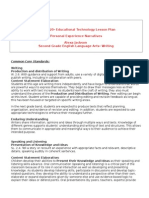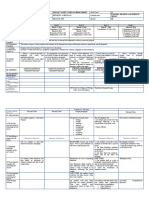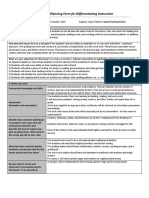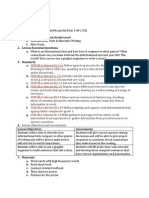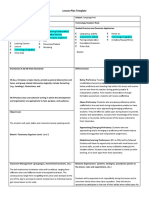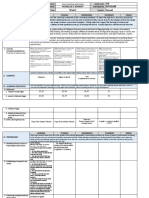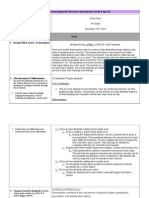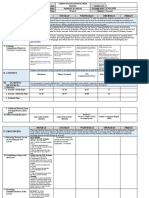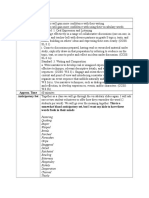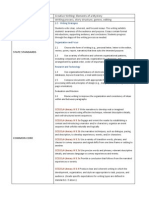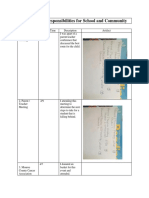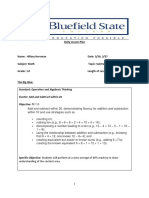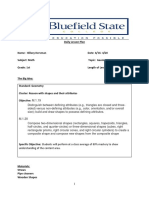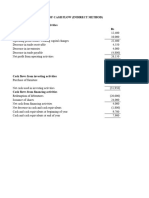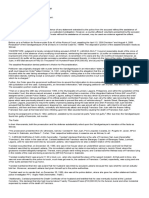Daily Lesson Plan
Name: Hillary Hersman Date: 1-16-17
Subject: ELA Topic: Many Cultures Spelling & Vocab.
Grade: 5th Length of Lesson: 30min
The Big Idea:
Standard: Language
Cluster: Conventions of Standard English
Objective: demonstrate command of the conventions of Standard English capitalization, punctuation, and spelling
when writing.
use punctuation to separate items in a series.
use a comma to separate an introductory element from the rest of the sentence.
use a comma to set off the words yes and no (e.g., Yes, thank you), to set off a tag question from the rest of
the sentence (e.g., It’s true, isn’t it?), and to indicate direct address (e.g., Is that you, Steve?).
use underlining, quotation marks, or italics to indicate titles of works.
spell grade-appropriate words correctly, consulting references as needed.
(CCSS L.5.2)
Materials:
Spelling Words – Found on page 20A of Readers Advance Copy
Vocabulary Words
Direct Instruction:
Introduce the spelling word list to students and go over each word. Ensure that students know the meaning of
each word.
Introduce the vocabulary word list. Go over the meaning of each word and relate it to a picture.
1
�Guided Practice:
Go over each word with students orally and together.
Students will write each vocabulary word in their vocabulary notebook and look up the definition.
Ask students to create a chart using 3 vocabulary words that they find to be the toughest. The chart should
include
The vocabulary word
The word used in a sentence
The definition of the word
A picture of the word
Lesson Closure:
Students will write each spelling word in their assignment notebook. Ensure that words are spelled correctly.
Students will retain their vocabulary list as a reference. If time permits allow for students to share one of their
choice words and what they paired with it.
Independent Practice:
Students will have homework to write 10 sentences using their spelling words. Students may choose which 10
words they want to use in their sentences.
Assessment:
Students will be assessed on correct spelling of their words and completion of their homework.
Students will be informally assessed on their completion of the vocabulary list.
Differentiation:
Tier 1: Struggling students will be given a printed spelling word list for them to refer to and study at home.
Vocabulary words with their picture and definition will be left on display for these students to look at while
they complete their vocabulary notebook assignment. These students will work with the teacher in a small
group to discuss vocabulary words.
Tier 2: On level students will work with a partner to complete their vocabulary notebook.
Tier 3: Above level students will work in a group on a “Word Study” while completing this activity. The
students will study the words more in depth.
Lesson Reflection:
2
� Daily Lesson Plan
Name: Hillary Hersman Date: 1-16-18
Subject: ELA Topic: Narrative Organizer
Grade: 5th Length of Lesson: 45min
The Big Idea:
Standard: Writing
Cluster: Text Types and Purposes
Objective: write a narrative to develop real or imagined experiences or events using effective technique,
descriptive details and clear event sequences.
orient the reader by establishing a situation and introducing a narrator and/or characters; organize an event
sequence that unfolds naturally.
use narrative techniques, such as dialogue, description and pacing, to develop experiences and events or
show the responses of characters to situations.
use a variety of transitional words, phrases and clauses to manage the sequence of events.
use concrete words and phrases and sensory details to convey experiences and events precisely.
provide a conclusion that follows from the narrated experiences or events.
(CCSS W.5.3)
Materials:
Begin-Middle-end “hamburger” organizer
Direct Instruction:
Discuss what a narrative is with students.
Discuss setting and characters
Discuss the importance of organizing ideas to create a good writing.
Introduce the “hamburger” organizer to students. Explain how the beginning, middle and end topics
should be used from the organizer.
3
�Guided Practice:
Give students an example of what they will be doing to create their narrative. Do this by presenting a setting
and a character. Work with the class to complete the class “hamburger” organizer.
Independent Practice:
Take the “popcorn” character and setting options around the room to students. Allow for each student to take
a character and a setting. This will be the topic they must use to create their narrative. Once each student has
their character and setting instruct students to begin completing their organizer. This organizer will be the
plan for their narrative.
Lesson Closure:
The teacher should go around the classroom and look at each students work to ensure that they are on the
right track with their writing.
This is an ongoing assignment. Students will turn in their completed organizer so that it can be further worked
on the following day.
Differentiation:
Tier 1: Struggling students will work in a small group with the teacher to develop their organizer. These
students will receive sentence starters and transition words for reference.
Tier 2: On level students will receive sentence starter and transition words for reference. These students will
work in a group for brainstorming ideas.
Tier 3: Above level students will develop transition word and sentence starters on their own. These students
will complete the graphic organizer in a group for brainstorming ideas.
Assessment:
Students will be informally assessed on the completion of the organizer.
Lesson Reflection:



